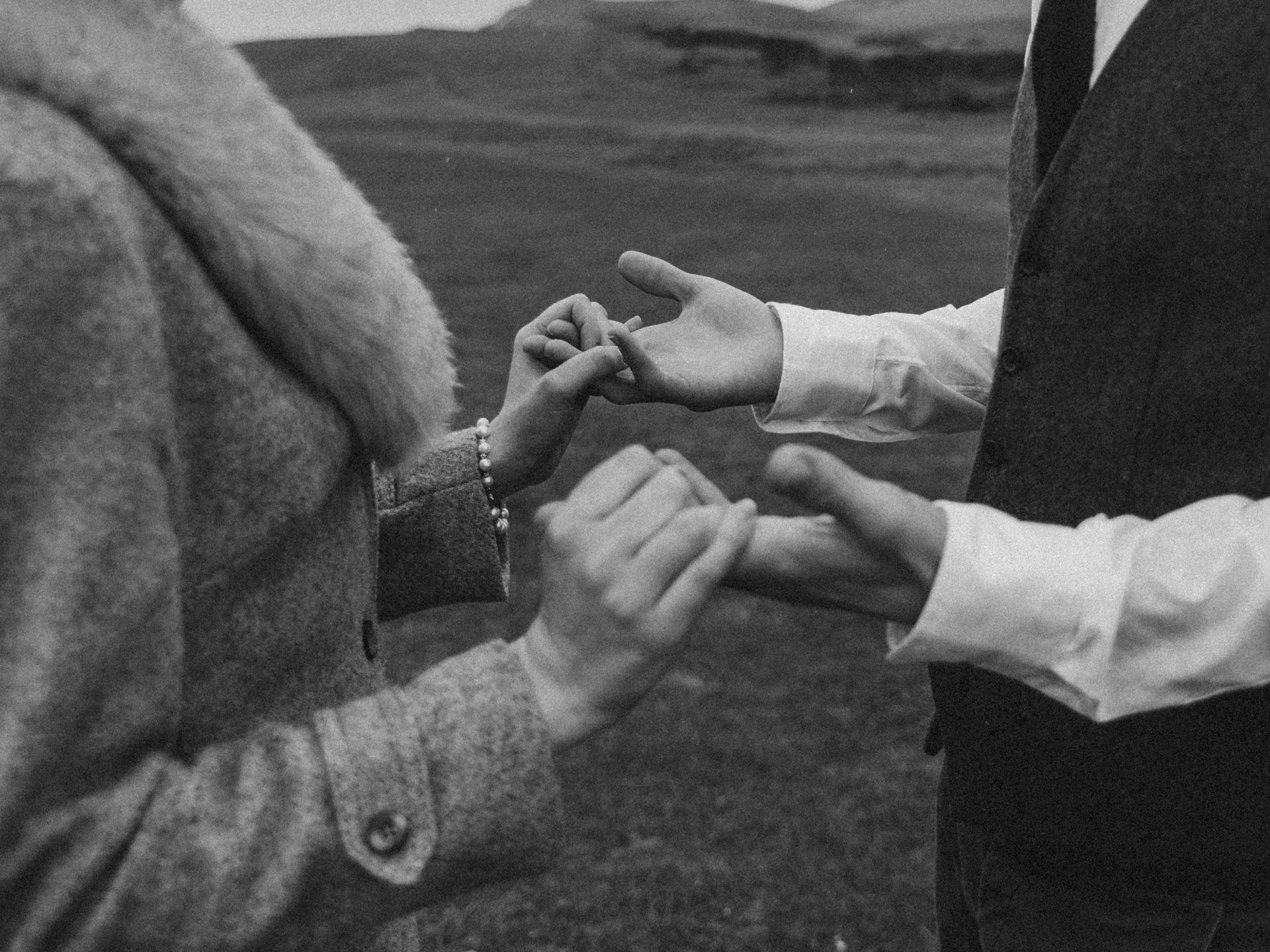We are of value
Alice Edge • August 23, 2020
Romans 12:1-8.

This letter that has become the book of Romans was written by Paul, but it’s a bit different to the other letters that we see in the Bible. This letter was written not to criticise a particular issue he had seen within the Roman faith community, instead, man scholars believe he had not had any contact with the Roman people and had never even been to Rome, let alone was responsible for the communities of believers that were found there. That’s not to say that Paul didn’t want to see or meet them, he just hadn’t gotten there yet. So he uses this letter to introduce himself, and probably to try to gain support from them as he makes plans to travel in their area.
This passage is stuck in the middle of Paul’s letter to the Romans. And I think it’s fascinating what we see in it. The reason that I mentioned Paul’s disconnection with this faith community is that this letter isn’t written to tell the Romans off about their behavior, the way he does with some of the other faith communities. He is writing to them about things that are apparently common behaviours within a lot of faith communities.
Back in those days, there were a lot of restrictions and rules around the Jewish faith, something we’ve touched on a few times before. People were put into categories dependent on what their social standing was, where they were from, how much money they earned, how many kids they had, and lots more. Paul talks about this struggle in a lot of his letters, as what the Christian faith was essentially trying to do was allow Gentiles to have a belief in the Jewish understanding of God through Jesus, and this is what we find in this passage. Before this point in history, Romans would not have been allowed to have anything to do with this belief structure. These social standings and beliefs and categories that people were put into impacted every aspect of their lives, from where they worked and what they could do for work, where they could live, who they marry, how much money they have, and how they can express their faith. And I think this is why Paul encourages them to allow God to transform the way they think. This isn’t a little thing. It’s huge. And it got me thinking.
I wonder if we still do this today. We are taught by society to categorise people based on heaps of different things: how much money they have, what they wear, how pretty they are, what their marital status or family build up is, their gender, ethnicity, experiences, and their employment status, just to name a few. And, whether we like it or not, that impacts the way we behave in faith communities. We begin to decide who we like enough to let in, to be leaders in our communities, to have voices in big (and small) decisions.
But what we learn from Paul, is that when we allow God to transform our minds, we start to see people differently. Instead of figuring out who’s in and who’s out based on our preferences, we have a God who values each person without question. Now, and I want to make a point of this, there will be some people that, because of their life situations, may need extra support, even if we feel they have done nothing to deserve it.
I had the opportunity to teach a class at our Training College at the beginning of this week, and we talked about this need to name our biases and prejudices to and against other people, exactly for this reason. Taking such a hard look at ourselves might be an uncomfortable thing to do, but it is the only way that we will be able to correct ourselves and see others’ humanity. What Paul is teaching us is to see that every person is valuable, has worth, and has the same opportunity we do to thrive in life, whether in everyday life or in more formalised worshipping communities. That God sees all people the same way, and if we allow God to transform the way we think, we will see that, too.
So carrying on from that, this next little bit stood out to me. “Don’t think you are better than you really are. Be honest in your evaluation of yourselves, measuring yourselves by the faith God has given us.” Prior to this week, I think I probably read this as a bit of a personal attack about humility. And maybe there’s a part of it that is accurate. But I do also wonder, in this context, what it actually means. I wonder if there was a bit of a belief that because these Roman folk had converted to Christianity, if they felt they were better, maybe superior, than others. Maybe they believed that the way they live or worship or talk to other people or whatever made them better. Maybe they were an affluent community, or maybe they shared well, or maybe they were all able to find work that was creating a better life for each person there. But what this tells us is that that doesn’t make them better than any other person.
I think this is a trap that is easy for us to fall into. Perhaps not intentionally, maybe instead it’s something we’ve adopted or has just never been challenged. We are not better than anyone else because of what we believe, how we treat people, what leadership position we hold, how much money we have, or how much we serve in our communities. It is only by the grace of God we are in the circumstances that bring us here today. One quick life decision made by ourselves or someone else could have landed each one of us in very different life situations. We are not better than others.
But, we are also not worse. Like I said about others earlier, and want to repeat again, our worth is not negotiable. God sees each one of us as treasured people, valued and loved and worthy.
Finally, and this is where I’m going to close from today, the last part of this passage says, “We are many parts of one body, and we all belong to each other,” and then lists different spiritual gifts that we might have. If we believe all that the first section of this passage teaches, if we allow God to transform our minds, we suddenly have no option but to realise that our spiritual gifts are to be used towards everyone, without exception. These expressions of God in us, our spiritual gifts, are not to be used selectively to people who have earned the opportunity, to those who we deem worthy, or really with any attitude of it being a chore.
We are expected to live out our spiritual gifts to grow the Kingdom of God, but from a place of viewing the value and worth of others and ourselves. Regardless of the life circumstances in which we find ourselves. Regardless of whether or not we think another is “worthy” or “doing enough to help themselves” or what they’ve done or who they are. Every person, including ourselves, is worthy of love and belonging. There is no place for exclusion in the Kingdom of God, and there is no place for exclusion in our faith communities. And when we see this at its best, we see good things come. We see more and more of God at work, we see our communities begin to thrive, and we see people’s lives transformed because healing takes place.
This writing from Paul to the Romans is just as valid and applicable today as it was when he wrote it. We probably have just as much work to do, and it’s probably going to be just as hard. But we know that God was in the work then, and God continues with us now
Sermons For The Moment

This is an interesting Psalm – another psalm of ascent. We spoke about these Psalms of Ascent a few weeks ago. They were songs the Jewish people sang as they made their way to Jerusalem to go to the temple, through the forest, along the tracks, camping by the roads. And I believe songs like this kept them focussed and kept their spirits up. I can imagine days of walking together, tiring, boring, hot and dusty. And singing some of these Psalms keep them focussed on the faithfulness of God. Much better then eye spy for the kids. Journeys are not all their cracked up to be even if the destination is worth it. As you know, when I was growing up we always holidayed at Bawley Point past Ulladulla, and in those days it was about a 4 hour drive from Sydney. We always left later than we meant to…and the last 20 mins was on a dirt road. One year when I was probably about 4 years old it was dark by the time we got to the dirt road, and half way along the dirt road, was a dodgy wooden bridge over a river. I think part of the bridge had been damaged and we had to wait a bit in the pitch black darkness before we could proceed. Dad was out with a torch ensuring the bridge was safe to drive on and mum and us 4 kids were sitting in the darkness – no street lights, no moonlight. Of course, you might be able to guess what I said to mum in that car, with fearful crying…you’ve probably heard it from kids before. I said ‘I want to go home’. Mum said to me, ‘we can’t go home Robyn, we’re almost there’. In truth, after the bridge we had the last 10 minutes of a 4 hours journey left. We safely crossed the bridge and we were OK. But I remember it. I remember the feeling of being scarred in the darkness. I remember not liking this journey at all. Even though I always loved the destination. Well this psalm celebrates the end of the journey and the arrival at the destination. Psalm 126:1-3, “When the Lord brought back his exiles to Jerusalem, it was like a dream! We were filled with laughter, and we sang for joy. And the other nations said, “What amazing things the Lord has done for them.” Yes, the Lord has done amazing things for us! What joy!” Before we can understand the laughter and joy of the Israelites, we have to understand their journey. This Psalm looks back to when they arrived back in Jerusalem after 70 long years in Babylon. The captives had experienced great sorrow and mourning in exile. We read these heartbreaking words in Psalm 137: “Beside the rivers of Babylon, we sat and wept as we thought of Jerusalem. We put away our harps, hanging them on the branches of poplar trees. For our captors demanded a song from us. Our tormentors insisted on a joyful hymn: “Sing us one of those songs of Jerusalem!” But how can we sing the songs of the Lord while in a pagan land?” (Psalm 137:1-4). Their tormentors demanded they sing joyfully, but they were like – that’s impossible, it doesn’t come from our heart. So they just sat by the waters of Babylon and wept. But now by an amazing work of God they were suddenly back in Jerusalem. And so their joy came from their heart. The wait was over, the journey was complete. “We were filled with laughter, and we sang for joy.” The journey is the hard bit though isn’t it? I was reminded of this, this week. An Officer couple I was speaking to, said that their teenager said some very hurtful things to them. Stuff like, ‘you make my life worse’. As they spoke to me, I did very little but listen and pray with them. They do have other supports in their life as well, already seeing a psychologist. But what I was thinking in my head as they were speaking was ‘oh the teenage years, I’d forgotten them’. Though we have 2 wonderful young adults in P and K, they were times when it was more than tense. K wears her heart on her sleeve, and to this day apologises for some of the things she said to me. And P, you wouldn’t know what he was thinking, and then all of a sudden all his thoughts and feelings for the last 3 years would come out like molten lava everywhere. A few days later I checked in to see how the couple and their teenager were going. I mentioned in passing about teenage years and very briefly about our experiences. I didn’t want to make it all about me. But I said teenage years can be painful and those years can really hurt everyone in the family. Teenager included. They know that we have a good relationship with P and K and they said to me, you know, this is helpful. It gives us hope. I was like, yep, this too shall pass. Because when you’re in the midst of the journey of pain and sorrow, you sometimes wonder if there’s light at the end of the tunnel. If you’ll laugh again or experience joy again. You begin to wonder, “Is this all that God has for me? Will I ever be happy again?” And here’s the promise in Psalm 126:4-6, “Restore our fortunes, Lord, as streams renew the desert. Those who plant in tears will harvest with shouts of joy. They weep as they go to plant their seed, but they sing as they return with the harvest.” When you are going through a time of deep sorrow, Psalm 126 is strong medicine for your soul. It carries a powerful message of hope. It tells you that times of trouble and sorrow do not last. It tells you that God will turn your sorrow to joy and your tears to laughter. If you are going through a challenging time right now, I pray that this psalm will speak to your heart this morning. Let me tell you right up front, whatever you’re going through, it will get better. God will change your tears to joy. This week I found something I wrote about 10 years ago. I had written it on a piece of paper and there was a whole reflection about my life. At the time we had my mum living with us, she had dementia, and mostly I remember the good times and the fun times with her. I was also the Corps Officer at Glebe and Bob was the manager at William Booth House. After a page of writing I had written something like this “I’m often anxious, I’m usually stressed, I have eczema on my eyelids and ulcers in my mouth. I always feel pressed.” I went out to Bob in the lounge room and I’m like, ‘oh my goodness, eczema on my eyelids and ulcers in my mouth’, often anxious, usually stressed. The thing is, my life feels a long way from that now, and I’d forgotten what that part of my journey felt like. I’m sure when I was there I couldn’t look ahead and see a time of joy…but the truth is that “Those who plant in tears will harvest with shouts of joy. They weep as they go to plant their seed, but they sing as they return with the harvest.” This too shall pass. ‘Yes, the Lord has done amazing things for us!’ says verse 3. God is faithful – he does the healing, the restoring, he brings the streams in the desert that renews and brings fruitfulness. I don’t need to tell you – it takes time. Today, I’m praying for a work of healing in your life, a gradual restoration of joy, of laughter. Like me as a kid, sometimes we don’t like parts of this journey at all. Even though we know our destination is good. And ultimately, we have a destination like no other and that’s the promise of God. A home in heaven made possible through Jesus. May God bless you this week as you look to Him, listen to Him, find your hope in Him and find courage and healing in your journey.







